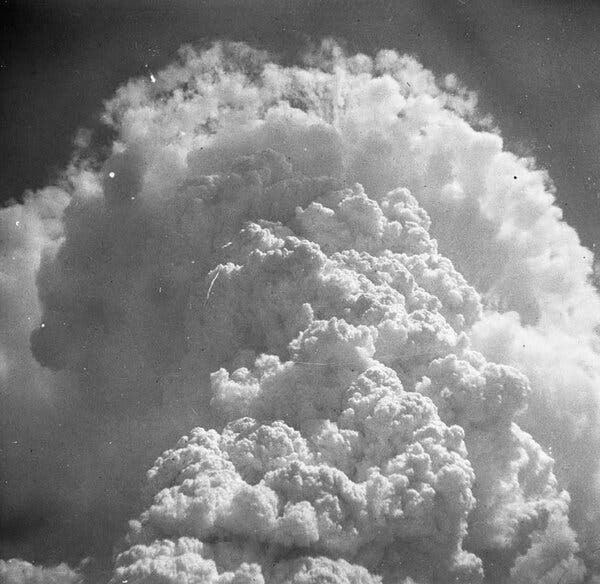The atomic bombings of Hiroshima and Nagasaki in August 1945 stand as a monumental event in human history, marking not only a pivotal moment in World War II but also ushering in an era defined by profound ethical considerations and unrelenting questions regarding the value of human life. In the aftermath of these bombings, which resulted in the death of over 200,000 individuals—most of whom were civilians—the world grappled with the human cost of warfare. From a Christian perspective, these events challenge the foundations of moral theology and the sanctity of life, posing profound questions about divine providence, justice, and the implications of human action.
The immediate aftermath of the bombings was characterized by sheer devastation. Cities were reduced to ruins, and entire communities were obliterated in an instant. This unprecedented destruction left deep psychological scars on survivors, an experience encapsulated by the term “hibakusha,” used to describe those who lived through the attacks. For many Christians, the reality of these survivors raises essential questions about suffering and redemption. Indeed, through the lens of Christian theology, suffering is seldom without purpose. It beckons the faithful to seek understanding in the depths of despair and to find solace in God’s presence amid chaos and destruction.
In the Christian worldview, the inherent value of each life is grounded in the belief that human beings are created in the image of God (Imago Dei). Consequently, the indiscriminate killing of innocent lives in Hiroshima and Nagasaki generates a profound theological crisis. How can humanity reconcile such atrocities with the belief in a loving and just God? The deaths of so many innocents prompt the faithful to reflect on the nature of evil and the existence of free will. Questions abound: Is war a manifestation of humanity’s fallen nature? Are there circumstances under which such immense loss can be justified?
The biblical narrative offers insights into the nature of suffering. The Book of Job serves as a poignant reminder that suffering is not always a direct consequence of one’s actions; rather, it is sometimes a profound mystery that calls for faith amid confusion. The righteous Job, despite enduring unimaginable loss, ultimately encountered God in his suffering. Job’s story symbolizes hope and the possibility of restoration, even when faced with the horrors of existence. This perspective encourages Christians to extend compassion towards those affected by the bombings—both the victims and the perpetrators—recognizing that all are ensnared in a complex web of sin and redemption.
Furthermore, the atomic bombings represent a significant inflection point in the historical narrative of warfare. This tragic episode starkly shifts the paradigm of military conflict, as it introduced the age of nuclear weapons and the attendant moral implications. Throughout modern history, warfare has often been justified through notions of honor, national interest, or self-defense. Yet, the unprecedented sheer scale of death and suffering experienced in Hiroshima and Nagasaki reframes such justifications. For Christians, the concept of just war—a doctrine developed by theologians over centuries—now faces scrupulous re-evaluation. If the sanctity of life is paramount, how can one ethically justify warfare that utilizes such instruments of mass destruction?
As Christians reflect upon Hiroshima and Nagasaki, the call for peace emerges as a resolute imperative. The Gospel’s message resonates with an urgent plea for reconciliation and nonviolence. Martin Luther King Jr., a prominent Christian leader and civil rights activist, articulated that “violence begets violence” and that encroaching upon the sanctity of life only serves to undermine the very principles of justice and love that lie at the heart of Christian teaching. The teachings of Jesus Christ—who preached love for one’s enemies—underscore the essential belief that peace is paramount and should be strived for above all else.
The legacy of Hiroshima and Nagasaki extends beyond the immediate historical context; it serves as a somber cautionary tale that beckons humanity towards a promise of change. The tragedy compels individuals and nations alike to contemplate the consequences of their actions and the moral weight of decisions made in times of conflict. Moreover, it invites Christians to engage actively in the quest for peace, justice, and a more profound understanding of what it means to be stewards of God’s creation.
Reflecting upon the bombings can serve as a starting point for dialogue—a dialogue rooted in the tenets of empathy and compassion. By fostering these discussions, communities can seek to recognize the value of every life lost and contemplate the pain experienced by those left behind. The Christian perspective emphasizes the importance of bearing witness to suffering, remembering that each life represents a unique creation worthy of dignity and respect.
In the grand tapestry of history, Hiroshima and Nagasaki symbolize not only profound loss but also the opportunity for transformative reflection. Through a Christian lens, the bombings challenge believers to reaffirm their commitment to the sanctity of life, calling into question the acceptable costs of war and human conflict. Ultimately, the challenge remains clear: to strive for a world where love prevails, one in which the lessons learned from such tragedies compel humanity to act with greater compassion and understanding.



